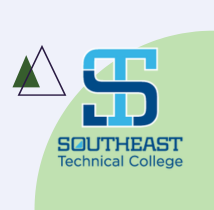



Every year of higher education brings students closer to their career path and meeting their goals. As students navigate their degrees and programs, they begin defining their goals and setting their sights on what they want to do with their future.
Although each year is essential to delivering a sense of lifelong learning and intellectual passion, the first year is especially critical. At this time, students determine whether they want to pursue higher education and if they’re receiving a fulfilling experience. Supporting these students and creating a personalized path to success will help foster motivation and guide them toward their ambitions.
The first year of college is an exciting time for many students as they step out from under parental guidance and begin a new journey away from home. College students start making new friends, trying new things, and experiencing education differently than before.
A first-year student faces new challenges as they navigate how to ask for help, where to locate resources, and what courses will put them on the path toward success. These challenges can be intimidating for some who may not know how to take the steps they need to succeed.
The first year is when many students determine their feelings toward higher education. At this stage, students decide which career paths they want to take and whether they need a college education to achieve their goals. Despite its importance, the freshman curriculum does not always reflect the need for higher learning, and many students don’t receive the expected experience.
Additionally, the first year of college can set the tone for the rest of a student’s academic experience. Those who fall prey to late nights and fun excursions are not always capable of balancing exams, assignments, and coursework. With so many class options, career paths, and people to navigate, students who don’t have a sense of time management or succumb to anxiety may struggle to believe college is the right path for them.
Over time, experts have debated the predictors of college success, but a few common factors still indicate signs of success in higher education. The domains of first-year student success include academic achievement, social support, and critical thinking.
Predictors of first-year student success indicate that students with higher grades before college are more likely to have higher grades in college. Additionally, students who believe in their ability to perform are more likely to persevere through their studies.
As students leave their family and high school friends to pursue higher education, they undergo emotional strain that can become overwhelming. Individuals with a solid support system are more likely to take risks, including going to college, making new friends, and exploring new career paths. These students can develop better coping strategies that boost their mental health, allowing them to bounce back from challenges and continue pushing toward their goals.
Students who can think critically are also more likely to succeed in college. Students who can analyze and assess information and outcomes are better equipped to take responsibility and understand how to learn. Higher education institutions can foster critical thinking, but students without experience in it may struggle to trust the educational process or understand the potential outcomes of their actions, including dropping out of college.
Many first-year students are excited to embark on their independent journey but can be overwhelmed at how much responsibility they hold. These students might have difficulty adjusting to the new environment without resources. Because the first year of higher education is critical for student success, supporting first-year students is vital to keeping them engaged and completing their degrees and programs.
First-year students often have the least course options, the largest class sizes, less advisement, and the least personal living arrangements. Bridging some of these gaps can bring students closer to their education and help them find their path to success.
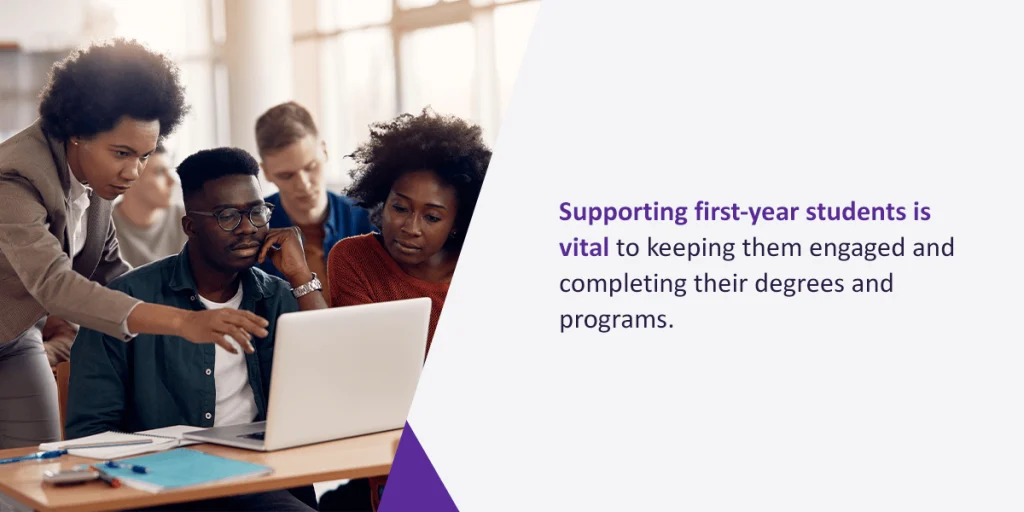
Tips to support your first-year students on campus include:
Supportive resources are excellent for first-year students who are still adjusting to campus life. However, these students must know who to speak to and where to find necessary information. Hosting campus events and organizing resource fairs can encourage students to learn more about your institution’s resources.
Instructors and staff members can be excellent success coaching team members. Assigning students with a faculty member gives them a direct point of contact if they need assistance. Additionally, these advisors can help your students stay on track for graduation and offer insight into job fields and career paths.
Many colleges and higher education institutions offer a freshman seminar where students can learn the ins and outs of campus life. These classes can meet as little as once a week and do not have to assign homework. Instead, these classes encourage student collaboration and motivate students to interact with campus resources, events, and organizations.
Higher education is the first step toward a student’s career path, and many higher ed institutions offer a bountiful course catalog of applicable classes. Some students will doubt their ability to choose the classes they need or schedule a semester that allows them to follow their interests. Using Watermark Student Success & Engagement, you can connect with your students and guide them towards the classes they need to complete their degrees while following their interests.
Rather than filling first-year schedules with general education requirements, first-year students can benefit from a more personalized class schedule that reflects their needs, wants, and interests. Showing them your exciting classes can motivate them to seek more educational experiences.
Asking your current first-year students questions about their time on campus can help determine what would best benefit your upcoming students. Administering student surveys and evaluations can help you devise actionable insights that drive change at your institution.
Watermark delivers solutions to higher education institutions that drive change. We know how important that first year of higher learning is, and we want to help you bring personalized course schedules and support the needs of your students.
Watermark Student Success & Engagement allows you to seamlessly collect and organize data to turn it into actionable insights. Our software makes it easy to identify and connect with students who need support. You can use your research to develop intervention strategies, make appointments, and track trends over time. With easy alerts, guided pathways, and intuitive reporting, Student Success & Engagement offers all you need to connect with your students and drive change at your institution.
Request a Student Success & Engagement demo, and deliver your first-year students the personalized experience they deserve from the beginning of their academic journey.





































































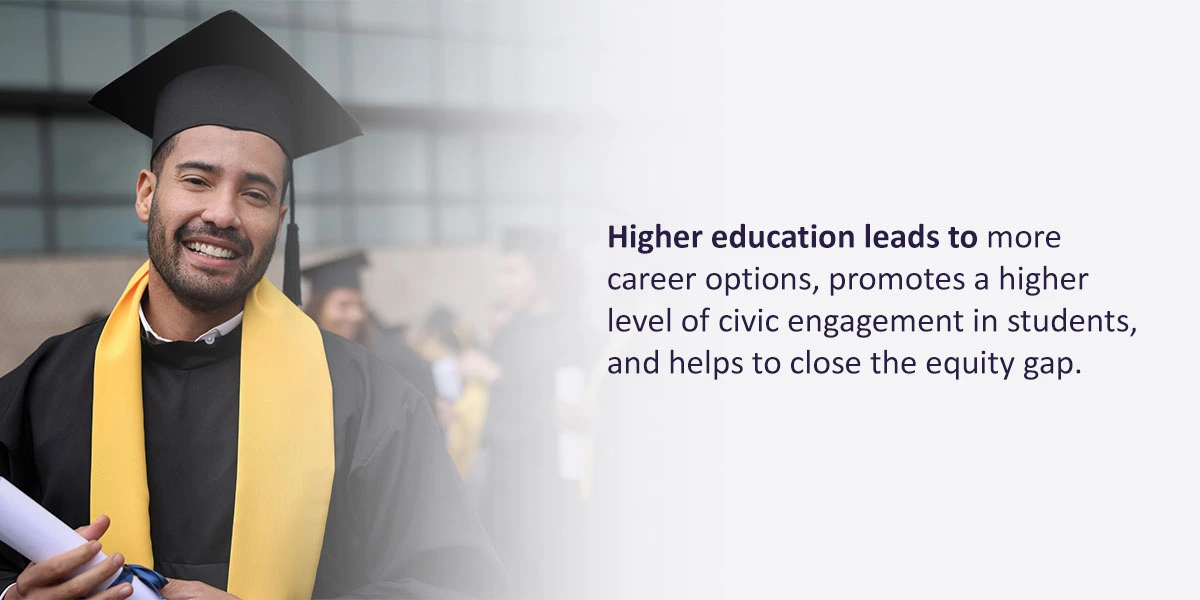





























































































































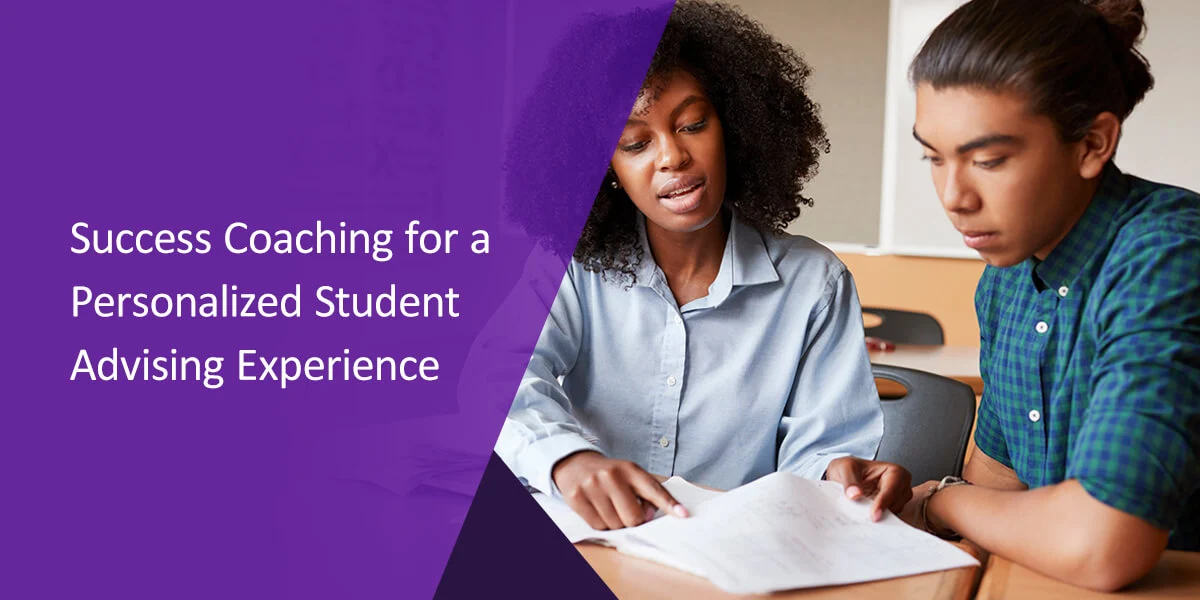





































































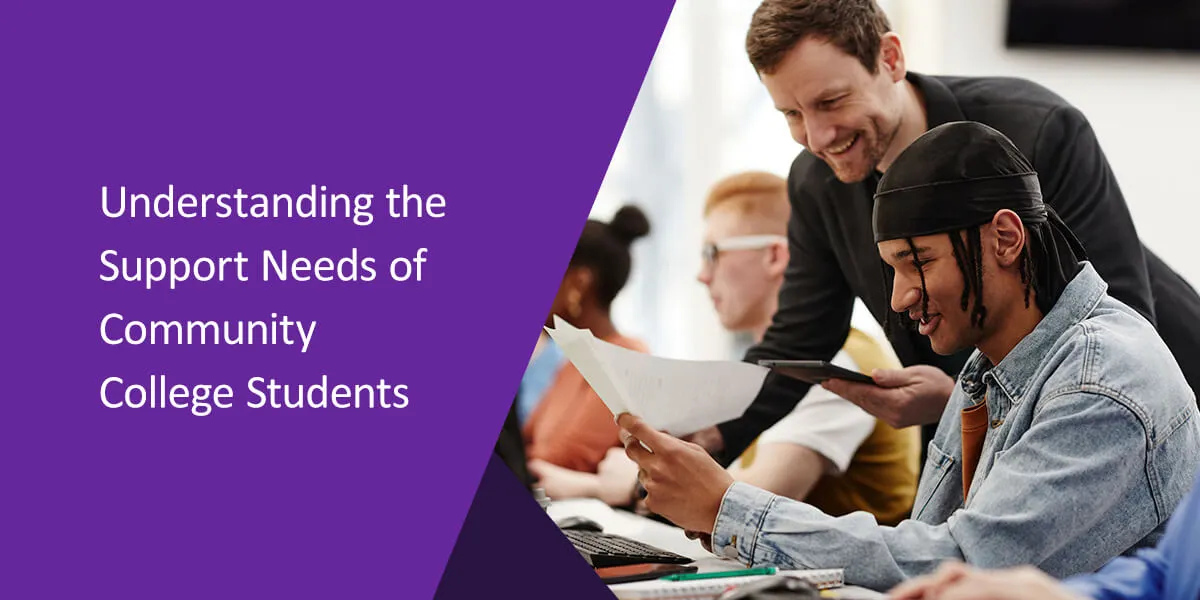





















































































































Submit this form to schedule a meeting with one of our reps to learn more about our solutions. If you need customer support instead, click here.